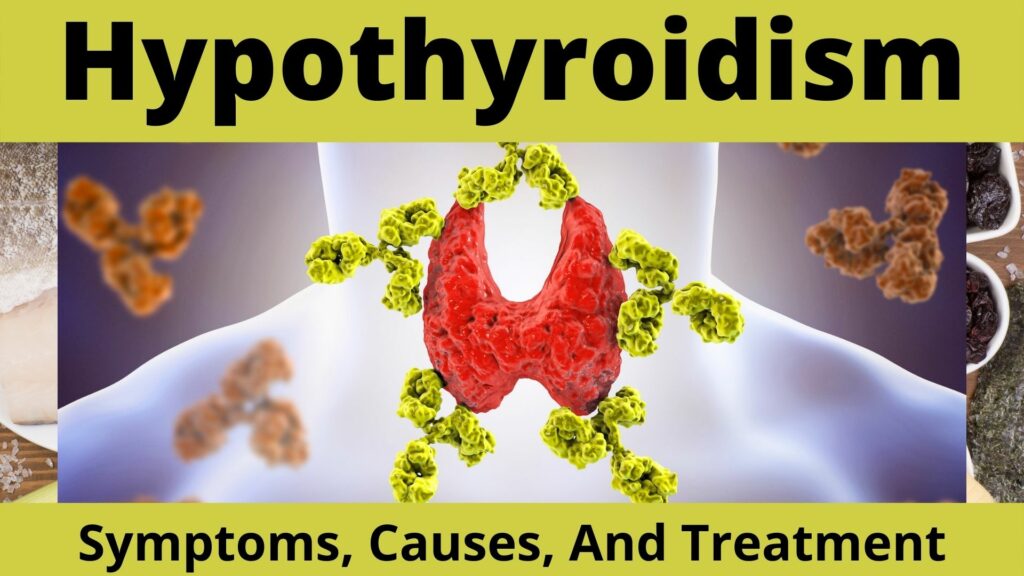Contents
Understanding Hypothyroidism
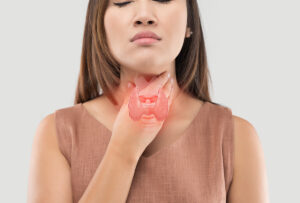
Hypothyroidism is a condition where the thyroid gland does not produce enough of the hormone thyroxine. When we talk about “thyroid,” we are actually talking about both hypo and hyperthyroidism. ‘Hypo’ means ‘low’ while ‘hyper’ means ‘high’. So if your thyroid is functioning properly, it will be in an ideal balance between the two. You should have no evident symptoms. If you do have symptoms of hypothyroidism, then there may be something wrong with your endocrine system. You may need to consult a doctor as something may require medical attention.
Symptoms Of Hypothyroidism
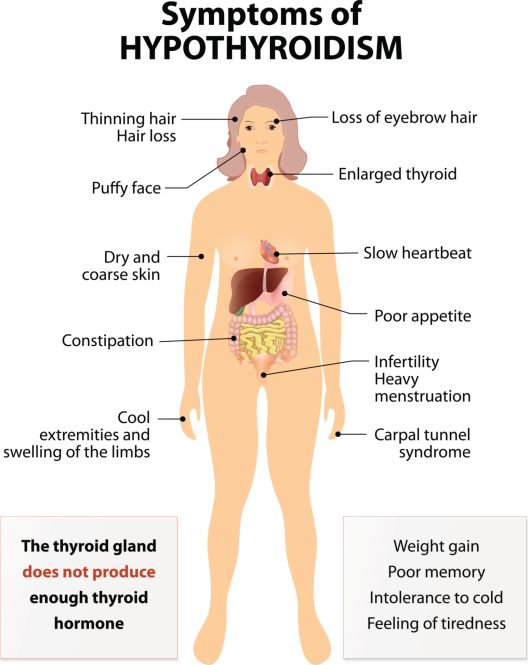
In the meantime, you may have hypothyroidism symptoms that are causing physical problems.
Physical Problems
The most common symptoms of hypothyroidism include fatigue, weight gain, or difficulty losing weight even if your diet and exercise routine has not changed; hair loss in women (especially thinning on the scalp), and a pale appearance due to an increase in fine hairs all over the body.
Intolerance to Cold
Another common symptom of hypothyroidism is intolerance to cold, even in warm weather when others are comfortable. Cold hands and feet may be a sign that you have low thyroid function, especially if there are no other symptoms present. Hypothyroid patients often find hot flashes feel much worse than they would expect them to based on their frequency. This is because when you have low thyroid function, the body’s temperature regulation system doesn’t work properly.
Hair Loss
Hair loss can be either diffuse or in patches and often occurs on both sides of the scalp. The hair becomes progressively thinner over time until it begins to disappear altogether, leaving smooth skin where there used to be hair.
Itchy and Scaly Skin
Itchy, scaly skin is another common sign of low thyroid function. The presence of dry or itchy rashes can also be a sign that you have hypothyroidism. They often occur in the creases behind your knees and elbows as well as on other parts of your body like around your ears or waistline.
Poor Metabolism
Thyroid function is the main regulator of your metabolism. A gradual slowing down in metabolic processes can contribute to weight gain, which means it’s important for anyone with thyroid problems to monitor their diet and make sure they are maintaining a healthy lifestyle.
If you think that you might be suffering from hypothyroidism or an underactive thyroid, the first step is to visit your doctor for a proper diagnosis.
Causes Of Hypothyroidism
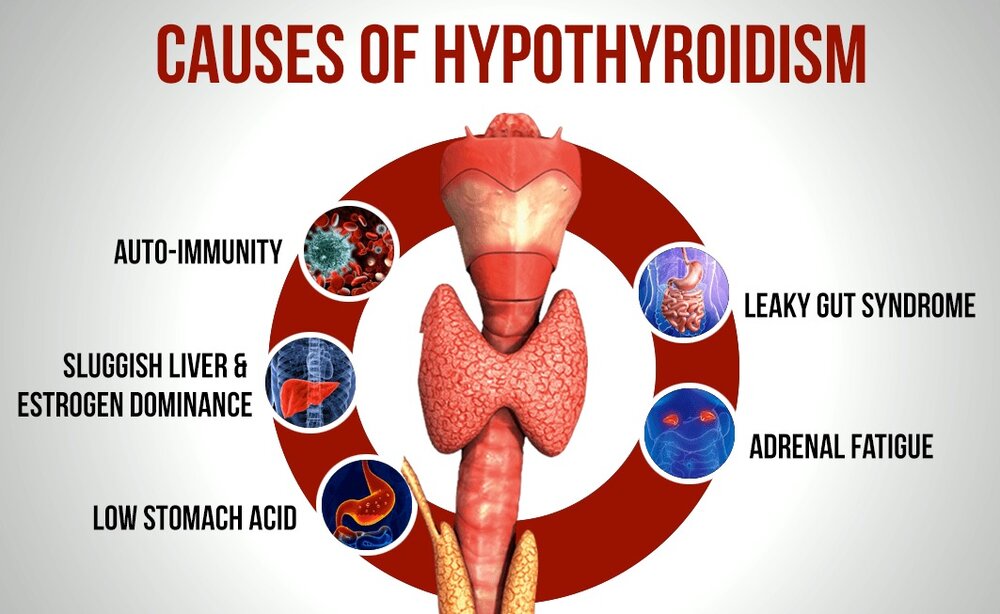
Hypothyroidism is caused by the thyroid producing too little of its hormones. The exact cause can vary, but there are common factors that contribute to this condition. Some examples include:
- genetics
- autoimmune diseases (such as Hashimoto’s disease)
- radiation exposure
- surgery to the neck area
- certain medications such as lithium carbonate
- iodine deficiency in the diet
Diagnosis Of Hypothyroidism

The doctors perform the diagnosis of hyperthyroidism through blood tests to measure thyroid-stimulating hormone (TSH) levels.
TSH, T3, and T4

A TSH test measures the level of thyrotropin, which triggers the production and release of thyroid hormones from your pituitary gland. Once diagnosed with Hypothyroidism, patients are typically prescribed synthetic versions of the hormone thyroxine (T-four) and/or triiodothyronine (T-three). It is important to note that doctors can diagnose hypothyroidism through a biopsy of the thyroid gland, which checks for changes like lumpiness and enlargement.
A goiter (enlarged thyroid gland), as well as nodules or lumps within the thyroid, are common signs of autoimmune disease such as Hashimoto’s disease, which is a common cause of Diagnosis Of Hypothyroidism.
Treatment Of Hypothyroidism
Treatment for Hypothyroidism is done by using thyroid hormone replacement therapy. Patients will typically take a daily pill containing the synthetic versions of T-four and/or T-three, or receive an injection with these hormones every few weeks. If diagnosis occurs during pregnancy, doctors may prescribe high doses of thyroxine to protect the baby from developing a birth defect. Some patients may be concerned with long-term hormone replacement and will ask their doctor about natural treatments for Hypothyroidism.
Remedies To Control Hypothyroidism
The remedies to control Hypothyroidism aren’t intended to replace diagnosis or treatment but can provide temporary relief until medical attention is sought out.
One natural remedy for Hypothyroidism is the use of iodine and kelp supplements.
However, patients should be aware that these can interact with anti-thyroid drugs prescribed by a doctor to treat hypo or hyperthyroidism as well as an overactive thyroid gland.
A patient’s diet also has a big impact on thyroid function, which is why it’s important to ensure they are consuming enough nutrients like iron and zinc.
Some of these include taking synthetic hormones orally in pills, nasal sprays, or injections.
The most important part of treating Hypothyroidism is being aware that it exists, understanding the symptoms associated with it, and knowing which treatments are available to manage this condition properly.
Precautions To Be Taken
There are a few precautionary measures that you must take in case of hypothyroidism.
- Regular checkups to monitor the thyroid levels.
- The dosage of medication should be adjusted accordingly.
Yet another sign which is similar to hypothyroidism and can lead to a diagnosis of hyperthyroidism is sudden weight loss despite increased appetite, fatigue, and anxiety(stress). In addition, one may also observe bulging eyes, increased heart rate, diarrhea, and a general feeling of being unwell.
In case you the doctor diagnoses you with hyperthyroidism or suspect that it is something else other than thyroid disease, consult your doctor immediately for diagnosis and treatment.
The most common cause of this condition is iodine deficiency due to which the production of certain enzymes in your thyroid gland is inhibited. These enzymes play an important role in regulating various functions that take place in your body.
Precautions to take in case of Hypothyroidism diagnosis involves making some changes in your lifestyle and diet. For instance, instead of eating iodine-rich foods such as iodized salt or seaweed, you should opt for more natural sources like kelp which is a type of edible seaweed that also contains high amounts of iodine.
Lifestyle Changes For Treatment
If the doctors have diagnosed you with hypothyroidism, it is important to take precautions so that you do not exacerbate the symptoms. There are some ways in which thyroid medication interacts poorly with other drugs and supplements. So, be sure to let your doctor know about any medications or supplements that you are taking before he makes some changes or prescribes you a new one. If there is any kind of thyroid disease in your family history, you need to be especially careful. This can even make the diagnosis harder. The symptoms may also worsen over time.
Quit Smoking

The doctor will advise lifestyle changes for you. This is because certain habits can cause Hypothyroidism to worsen or trigger an attack of it. The first thing that you need to do is quit smoking as this habit worsens thyroid issues and makes diagnosis more difficult. You should also avoid any kind of addiction like alcoholism as this deprives your metabolism.
Optimize the Iodine Intake
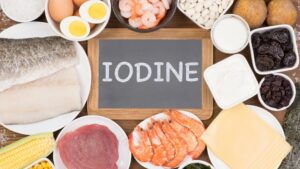
One important thing that you should keep track of is how much iodine you are consuming daily. The recommended intake for adults ranges from 150 micrograms (mcg) per day for teens and pregnant or breastfeeding women. The amount goes down to 290 mcg for men. If you are eating a lot of seaweed, it is important that you monitor your intake. This can cause problems with diagnosis and treatment if you consume too much iodine each day.
Track the Fluctuations in Weight
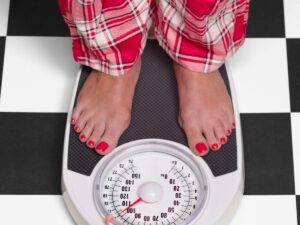
People who have Hypothyroidism will often complain about weight gain despite not having changed their diet or exercise routine. This is because their metabolism has slowed down, causing them to burn fewer calories. As the diagnosis of Hypothyroidism becomes harder it can worsen symptoms and even cause complications along the way if not treated properly.
These are some precautions that you should take in case of a Hypothyroidism diagnosis. You have probably heard people say that eating foods that are high in iodine is bad for the thyroid. This is true and you should avoid eating too much seaweed, kelp, or other foods that contain iodine. According to experts, there’s no such thing as a hypo diagnosis of the disease. When it comes to diagnosis, there are only two types: hyper and hypothyroidism.
Every human body needs certain proteins to remain healthy and active throughout its life. However, if the levels of these proteins are too low, the body may not function properly. This is what happens when a person suffers from hypothyroidism(underactive thyroid).
